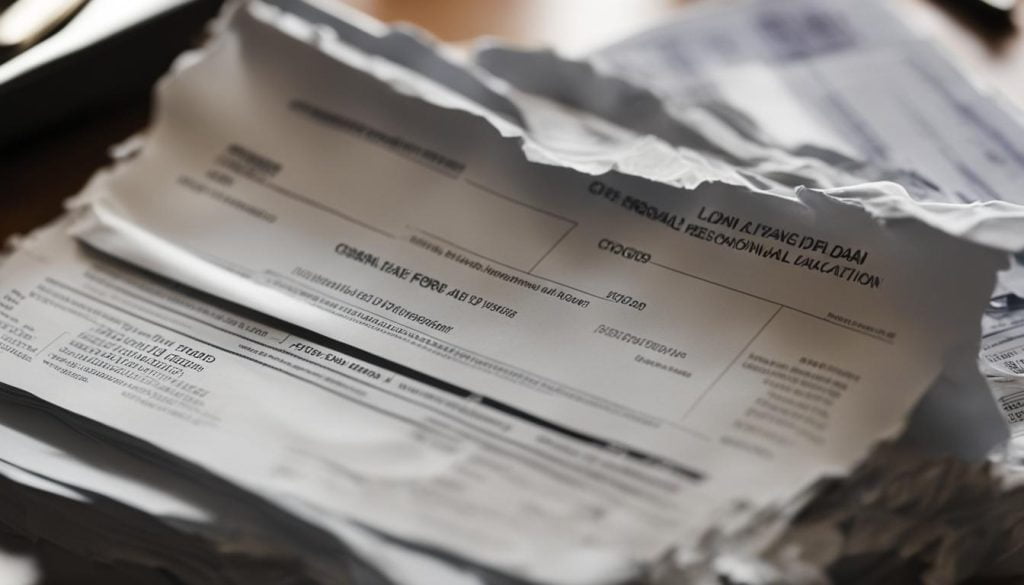Key Takeaways:
- Personal loans are a popular option for borrowing money in Singapore.
- The eligibility criteria for personal loans depend on citizenship, age, and income level.
- Singaporeans and PRs must be at least 21 years old, while foreigners must be between 21 and 65 years old.
- Banks typically require an annual income of at least S$30,000 for Singaporeans and PRs.
- Foreigners may need to have an annual income between S$40,000 to S$60,000 to qualify for a personal loan.
Types of Personal Loans
When it comes to personal loans, there are several options available to borrowers in Singapore. Understanding the different types of personal loans can help individuals make informed decisions about their borrowing needs. Here are the four main types of personal loans:
Personal Installment Loan
A personal installment loan is a popular choice for borrowers who need a lump sum of cash for larger expenses. With this type of loan, borrowers receive a fixed amount of money and repay it in monthly installments over a predetermined period. Personal installment loans are commonly used for weddings, home renovations, or emergencies. They offer flexibility in terms of loan amount and repayment duration, making them a versatile option for various financial needs.
Line of Credit
A line of credit is a flexible form of borrowing that allows individuals to access funds up to a pre-approved limit. Unlike a personal installment loan, a line of credit provides the borrower with the ability to withdraw any amount of money as needed, rather than receiving a lump sum. Interest is only charged on the amount withdrawn, making it a cost-effective option for managing fluctuating expenses. Lines of credit are often used for business purposes, ongoing projects, or as a financial safety net.
Balance Transfer
Balance transfer is a type of personal loan that combines multiple debt balances into a single loan with a lower interest rate. It involves transferring outstanding balances from credit cards or other loans to a new loan. Balance transfer loans are commonly offered by banks and can help borrowers consolidate their debts, simplify their repayment process, and potentially save on interest charges. This type of loan is particularly beneficial for individuals looking to manage their debt more effectively and reduce their overall interest payments.
Debt Consolidation
Debt consolidation programs enable borrowers to merge multiple debts into a single loan. With this type of personal loan, individuals can take out one loan to pay off their existing debts, such as credit card bills, personal loans, or other outstanding balances. Debt consolidation helps simplify the repayment process and may offer individuals the opportunity to secure a lower interest rate. This option is suitable for borrowers who are looking to streamline their finances and make their debt more manageable.
Understanding the different types of personal loans available in Singapore allows individuals to choose the most suitable option based on their financial situation and borrowing needs. Whether it’s a personal installment loan for a specific expense, a line of credit for flexibility, a balance transfer to consolidate debt, or a debt consolidation program for easier repayment, borrowers can find a loan that meets their requirements.
Eligibility Criteria for Personal Loans
When considering a personal loan in Singapore, it’s crucial to understand the eligibility criteria set by banks and licensed money lenders. The requirements for personal loans depend on factors such as citizenship, age, and income level. Singaporeans and Permanent Residents (PRs) must be at least 21 years old to apply for a personal loan. Banks typically require an annual income of at least S$30,000 for Singaporeans and PRs, regardless of their employment type. Foreigners also need to be between 21 and 65 years old, with a minimum annual income requirement ranging from S$40,000 to S$60,000, depending on the bank. Licensed money lenders may have different criteria, making them a more accessible option for individuals who don’t meet the bank’s eligibility requirements.
For Singaporeans and PRs, the necessary documents for a personal loan application usually include proof of identity, proof of address, and proof of income. Proof of identity can be an IC or passport, while proof of address can be utility bills or any document that states the borrower’s address. Proof of income, such as CPF statements or payslips, is also important for lenders to assess the borrower’s ability to repay the loan.
Foreigners face more stringent eligibility criteria when applying for personal loans in Singapore. In addition to the annual income requirement, which varies based on the bank, foreigners need to have an employment pass with a minimum validity of one year. Credit score is also an important factor for loan approval, as banks consider the risk of default based on the borrower’s credit history. Some banks may only provide loans to Singapore citizens or PRs, limiting the borrowing options for foreigners. Thus, having a good credit score, stable employment, and sufficient annual income can increase their chances of loan approval.
Understanding the eligibility criteria for personal loans is essential for borrowers to make informed decisions. By knowing the requirements set by banks and licensed money lenders, individuals can assess their eligibility and choose the borrowing option that best suits their financial situation.
Borrowing from Licensed Money Lenders
When it comes to personal loans in Singapore, licensed money lenders provide an alternative option to borrowing from banks. Licensed money lenders are regulated by the Ministry of Law (MinLaw) and offer loans to individuals who may not meet the eligibility criteria set by banks. Before borrowing from a licensed money lender, it is crucial to ensure that they are listed on the MinLaw website, as this ensures their legitimacy and compliance with regulations.
“Licensed money lenders often have more flexible eligibility criteria compared to banks.”
One important aspect to consider when borrowing from licensed money lenders is the loan contract. It is essential to carefully review the contract and understand the terms, including the repayment schedule, interest rates, and any additional fees. This will help borrowers make informed decisions and avoid any surprises or hidden charges.
Compared to banks, licensed money lenders often provide more lenient eligibility criteria. For example, Singaporeans and PRs earning less than S$20,000 per year can still qualify for a loan of up to S$3,000, while those earning more than S$20,000 can borrow up to 6 times their monthly income. Foreigners also have similar eligibility criteria, with loan amounts depending on their annual income.
Table: Comparison of Eligibility Criteria for Personal Loans
| Banks | Licensed Money Lenders | |
|---|---|---|
| Singaporeans & PRs | Minimum annual income of at least S$30,000 | Earning less than S$20,000 per year can still qualify for a loan of up to S$3,000. Those earning more than S$20,000 can borrow up to 6 times their monthly income. |
| Foreigners | Minimum annual income ranging from S$40,000 to S$60,000 | Similar eligibility criteria, with loan amounts depending on annual income |
Overall, licensed money lenders offer a viable alternative for individuals who may not meet the eligibility criteria set by banks. However, it is crucial to exercise caution and ensure the lender is licensed and regulated by the Ministry of Law. Understanding the terms of the loan contract is also essential to make informed borrowing decisions. By considering all options and eligibility criteria, borrowers can find the right financing solution for their needs.
Documents Required for Personal Loan Application
When applying for a personal loan in Singapore, there are several documents that you will need to provide. These documents are necessary for lenders to assess your eligibility and ability to repay the loan.
Proof of Identity
One of the essential documents is proof of identity, which can be your IC (Identity Card) or passport. This document verifies your citizenship or residency status.
Proof of Address
You will also need to provide proof of address, which can be in the form of utility bills, bank statements, or any other official document that states your current address. This helps lenders verify your residential address.
Proof of Income
An important document that lenders require is proof of income. This can include payslips, bank statements, or CPF (Central Provident Fund) statements. It demonstrates your ability to repay the loan based on your monthly income.
By preparing these documents in advance, you can streamline the loan application process and increase your chances of approval. It’s important to ensure all documents are up-to-date and provide accurate information.
Factors Affecting Loan Approval for Foreigners
Foreigners who are seeking personal loans in Singapore face several factors that can impact their loan approval. These factors include employment pass, annual income, and credit score. It is important for foreigners to understand these factors and take the necessary steps to improve their chances of loan approval.
Firstly, foreigners applying for personal loans must have a valid employment pass with a minimum validity of one year. This is a requirement set by banks and lenders to ensure that borrowers have stable employment and a reliable source of income. Additionally, the annual income of foreigners plays a crucial role in loan approval. Banks typically require foreigners to have an annual income ranging from S$40,000 to S$60,000. Having a higher annual income can increase the chances of loan approval.
Another important factor is the credit score of the borrower. Banks assess the creditworthiness and risk of default based on the borrower’s credit history. Foreigners with a good credit score are more likely to be approved for a loan. It is recommended for foreigners to maintain a good credit score by making timely payments on their existing loans and credit cards.
It is important to note that some banks in Singapore may only provide personal loans to Singapore citizens or permanent residents (PRs), excluding foreigners from their loan offerings. In such cases, foreigners may need to explore alternative borrowing options such as licensed money lenders or government financial assistance schemes.
| Factors | Impact on Loan Approval |
|---|---|
| Employment Pass | Must have a valid employment pass with a minimum validity of one year |
| Annual Income | Banks typically require annual income ranging from S$40,000 to S$60,000 for foreigners |
| Credit Score | Banks assess creditworthiness and risk of default based on credit history |
| Loan Options | Some banks may only provide loans to Singapore citizens or permanent residents, requiring foreigners to explore alternative borrowing options |

“Foreigners applying for personal loans in Singapore need to meet specific criteria, including a valid employment pass, a minimum annual income, and a good credit score. Understanding and fulfilling these requirements can significantly improve the chances of loan approval for foreigners.”
The Importance of Credit Scores and Borrowing Limits
When applying for a personal loan, credit scores and borrowing limits are crucial factors to consider. Credit scores serve as an indicator of the borrower’s creditworthiness and risk of default, while borrowing limits help promote responsible credit use and prevent excessive debt.
A good credit score is essential for loan approval, as banks use it to assess the borrower’s repayment ability. The Credit Bureau of Singapore assigns credit ratings from AA to HH, taking into account factors such as credit utilization, recent credit applications, account delinquency, and enquiry activity. Borrowers with lower credit scores may face challenges in obtaining loans and may be offered higher interest rates. To improve credit scores, it’s important to maintain a good payment history, keep credit utilization low, and avoid excessive credit inquiries.
Borrowing limits, on the other hand, are set to ensure individuals do not take on more debt than they can handle. In Singapore, individuals can typically borrow up to 12 times their monthly income as unsecured credit. Going beyond this limit or having too many unsecured debts can increase the risk of default and lead to loan rejection. It’s crucial for borrowers to carefully assess their financial situation and borrowing needs before taking on additional debt.
“Having a strong credit score and understanding borrowing limits are key to securing a personal loan. It’s important to maintain a good credit history and avoid excessive debt to increase your chances of loan approval.”
Comparison of Credit Score Ratings
| Credit Score Rating | Description |
|---|---|
| AA | Excellent credit history, low risk of default |
| BB | Good credit history, moderate risk of default |
| CC | Fair credit history, higher risk of default |
| DD | Poor credit history, significant risk of default |
| EE | Very poor credit history, extremely high risk of default |
Understanding the importance of credit scores and borrowing limits is essential for individuals seeking personal loans. By maintaining a good credit history, managing debt responsibly, and staying within borrowing limits, borrowers can increase their chances of loan approval and ensure they are on a path towards financial stability.
Employment History and Residency Status Impact on Loan Approval
When applying for a personal loan in Singapore, your employment history and residency status play a significant role in determining your loan approval. Banks carefully evaluate your employment history to assess your financial stability and ability to repay the loan. A solid employment history with consistent income is viewed favorably by lenders and increases your chances of obtaining a personal loan.
Providing CPF statements as proof of your employment history can help strengthen your loan application. Banks typically require these statements to verify your income and employment duration. If you have a short employment history or frequent job changes, it may pose challenges in securing a personal loan.
Residency status is another important factor considered by lenders. Foreigners, especially those holding Work Passes, may face higher income requirements compared to Singapore citizens or Permanent Residents (PRs). Banks often set higher income thresholds for foreigners due to the perceived higher risk associated with their residency status.
To increase your chances of loan approval, it’s essential to have a steady employment history, provide CPF statements as proof of your income, and meet the income requirements set by banks. This will demonstrate your financial stability and responsibility, making you a more attractive borrower in the eyes of lenders.
Employment History and Loan Approval
Your employment history provides lenders with valuable insights into your financial stability. Banks prefer borrowers who have a consistent employment record, indicating a reliable source of income. If you have been with the same employer for an extended period, it shows commitment and increases your creditworthiness.
Residency Status and Loan Eligibility
Residency status also affects your eligibility for a personal loan. Singapore citizens and PRs typically face fewer hurdles in securing a loan compared to foreigners. Foreigners, including Work Pass holders, may be subject to higher income requirements and additional documentation to prove their creditworthiness.
Meeting Income Requirements
Meeting the income requirements set by banks is crucial for loan approval. Higher-income levels generally increase your chances of securing a personal loan. It’s important to maintain a stable income to demonstrate your ability to make timely loan repayments.
| Residency Status | Income Requirements |
|---|---|
| Singapore Citizens and PRs | No explicit income requirements, but higher income increases chances of approval |
| Foreigners | Minimum annual income ranging from S$40,000 to S$60,000 depending on the bank |
By carefully considering your employment history, residency status, and meeting the income requirements, you can improve your chances of securing a personal loan in Singapore. Remember to provide necessary documentation, such as CPF statements, to support your loan application and demonstrate your creditworthiness.
Conclusion
To successfully obtain a personal loan in Singapore, it is crucial to understand the eligibility criteria and explore different borrowing options. Banks have specific requirements based on citizenship, annual income, and credit history, while licensed money lenders often have more lenient criteria.
Before applying for a personal loan, carefully evaluate your personal financial circumstances. Consider factors such as your annual income, employment history, and credit score. This will help you determine your eligibility and choose the most suitable borrowing option.
By being well-informed and proactive, you can navigate the personal loan application process with confidence. Remember to gather all necessary documents, such as proof of identity, address, and income. Whether you qualify for a bank loan or opt for a licensed money lender, make sure to choose a reputable and reliable institution.
FAQ
What is a personal loan?
A personal loan is a lump sum of money borrowed from a bank or licensed money lender, which is paid back over a fixed period.
What are the types of personal loans in Singapore?
The types of personal loans in Singapore are personal installment loans, lines of credit, balance transfers, and debt consolidation.
What are the eligibility criteria for a personal loan in Singapore?
The eligibility criteria for a personal loan in Singapore vary based on citizenship, age, and income level.
Can foreigners apply for personal loans in Singapore?
Yes, foreigners can apply for personal loans in Singapore, but they have to meet specific eligibility criteria.
What documents are required for applying for a personal loan?
Necessary documents for applying for a personal loan include proof of identity, proof of address, and proof of income.
How can licensed money lenders be an alternative for borrowing?
Licensed money lenders offer an alternative to borrowing from banks for personal loans in Singapore, with more flexible eligibility criteria.
How can I ensure that a licensed money lender is legitimate?
Before borrowing from a licensed money lender, ensure that they are listed on the Ministry of Law (MinLaw) website.
How do credit scores impact loan approval?
Credit scores play a crucial role in the loan approval process as they indicate the borrower’s creditworthiness and risk of default.
What factors do banks consider when evaluating loan applications?
Banks consider factors such as employment history, annual income, and credit score when evaluating loan applications.
What are the factors that can affect loan approval for foreigners?
Factors that can affect loan approval for foreigners include the validity of their employment pass, annual income, and credit score.






